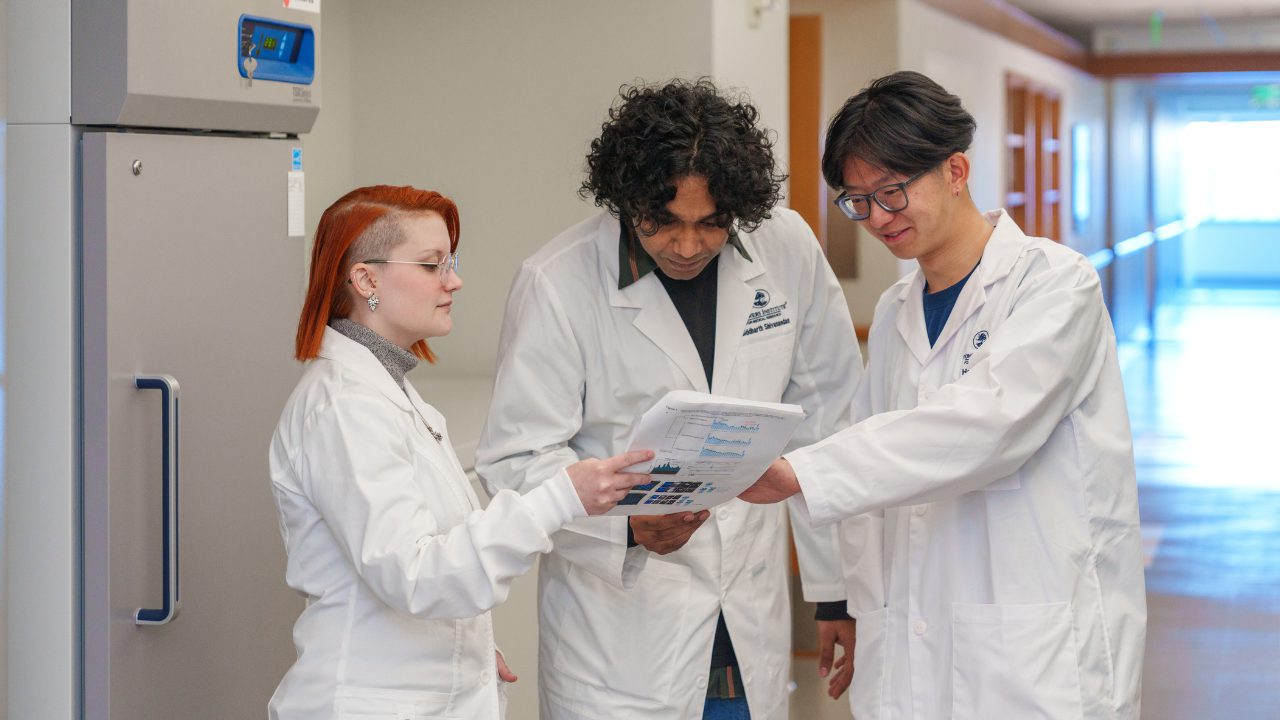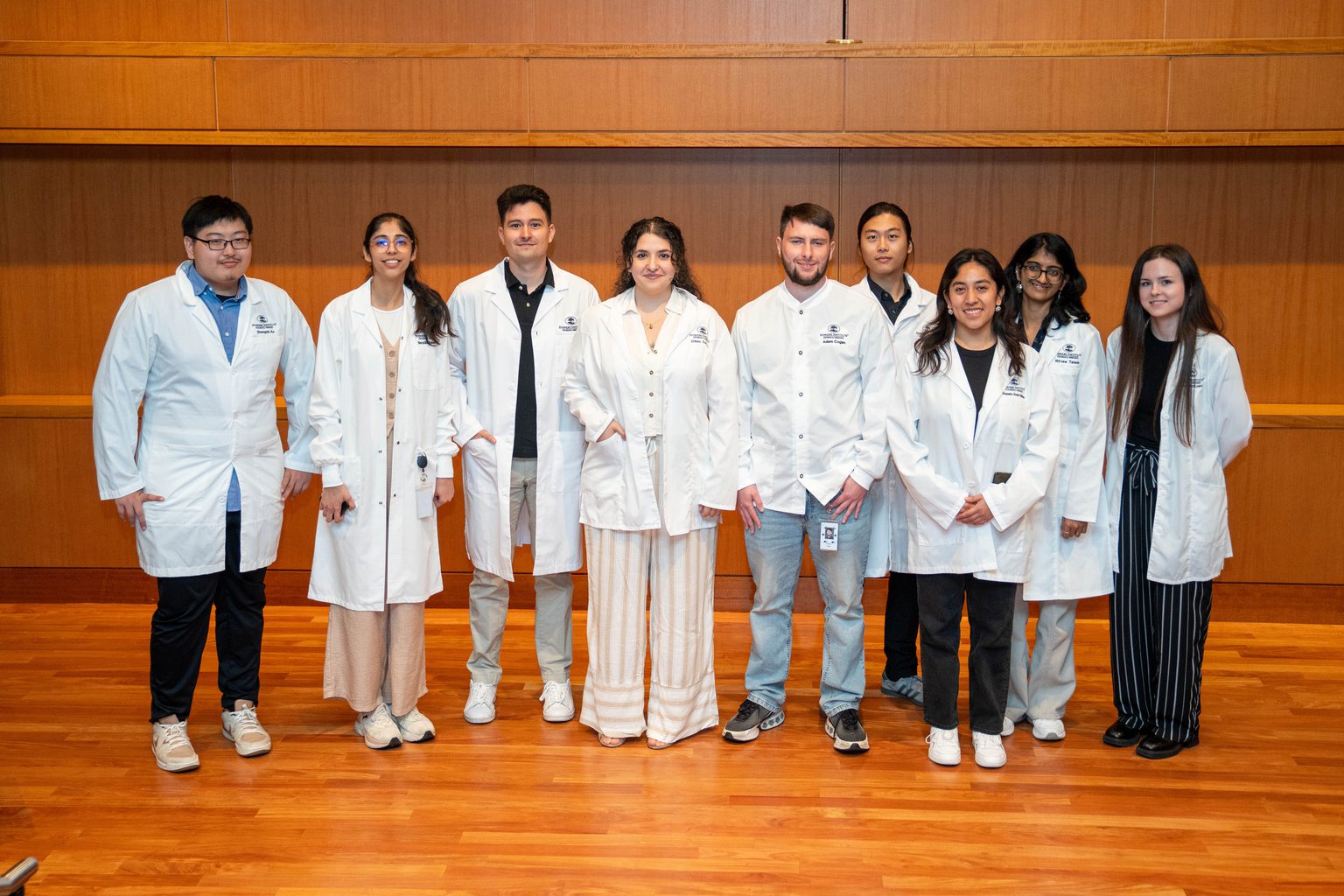The advantages of Stowers are unique, says Wint, with Summer Scholars fortunate to work closely with world-class investigators and state-of-the-art facilities not found at many other institutions.
“I think this program will give me more exposure to cutting-edge techniques and research,” says William Zhuang, an undergrad at Cornell University. “I will also be able to talk to researchers who all have different areas of expertise to better develop my own research goals. The amount of expertise in one institute is astounding.”
Zhuang hopes to become more proficient at analyzing scientific literature, which is high on the list for Madeleine Mueller too. She’s been reading publications from Investigator Linheng Li for a few years already, thanks to a long-term interest in stem cell and cancer research.
“When I saw that Stowers had a program for undergraduate students, I couldn’t wait to apply,” Mueller says. “I wanted to be able to see first-hand the research that I’d read about and loved for so long.”
Mueller isn’t the only scholar who’s been anticipating the opportunity to be a Stowers Summer Scholar.
“I first learned about Stowers when I visited the Institute to attend a BIG IDEAS @ScienceStowers lecture in high school,” says Calvin Winkler, an undergrad at the University of Missouri-Columbia. “Ever since then, it has been a goal of mine to apply for the Summer Scholars program.”
Rippee set her sights on Stowers a few years ago. “I’ve had my eye on Stowers since I was in AP Biology as a high schooler,” she says. “What better place to kickstart a research career than the Stowers Institute, a well-supported facility for innovating science just across the street from my college campus? I’ve been waiting to apply all these years, and now I’m finally here!”
There’s more to the program than benchwork, and Rippee is also looking forward to attending lab meetings, lectures, and internal seminars. Rippee is a senior at UMKC whose goals include a PhD in biology, so she appreciates the sneak peek into the PhD program at GSSIMR. Being a Summer Scholar will provide key skills for her long-term future as well.
“I get to experience tons of different subjects in biology that I would otherwise never see,” she says, “and learn how scientists present their data to their audience. Hopefully I’ll pick up on how to show the world my science here!”
At the end of the program, the scholars will strengthen their science communication skills at an all-Institute poster session, gaining valuable experience in describing their project as well as answering questions from other researchers. And when the poster session is done and the scholars depart, they will take with them new lab techniques and honed critical thinking skills.
“One of the biggest things that draws me to the Stowers Institute is the atmosphere,” says Rippee. “Everyone here is so friendly and kind. No judgment is given for experimental failures or lack of knowledge, which is so important to the learning experience.”
A summer spent in the research-focused environment of Stowers can help foster passion and commitment for research, motivating students to pursue science-related careers.
“I never fully realized the caliber of science going on here,” says Winkler. “It has been very exciting to be surrounded by it.”
The program can be invigorating for the investigators as well, providing an opportunity to see science through the fresh lens of the scholars. Many of them are also GSSIMR faculty members with a passion for, and commitment to, science education.
“I like having scientists at all levels of training in the lab,” says Assistant Investigator Sarah Zanders, PhD, vice dean of the Graduate School. “The summer scholars are just starting out and it is an honor that we get to give these bright students hands-on experience with world-class science.”
For more information about the Summer Scholars program, visit Summer Scholars.





